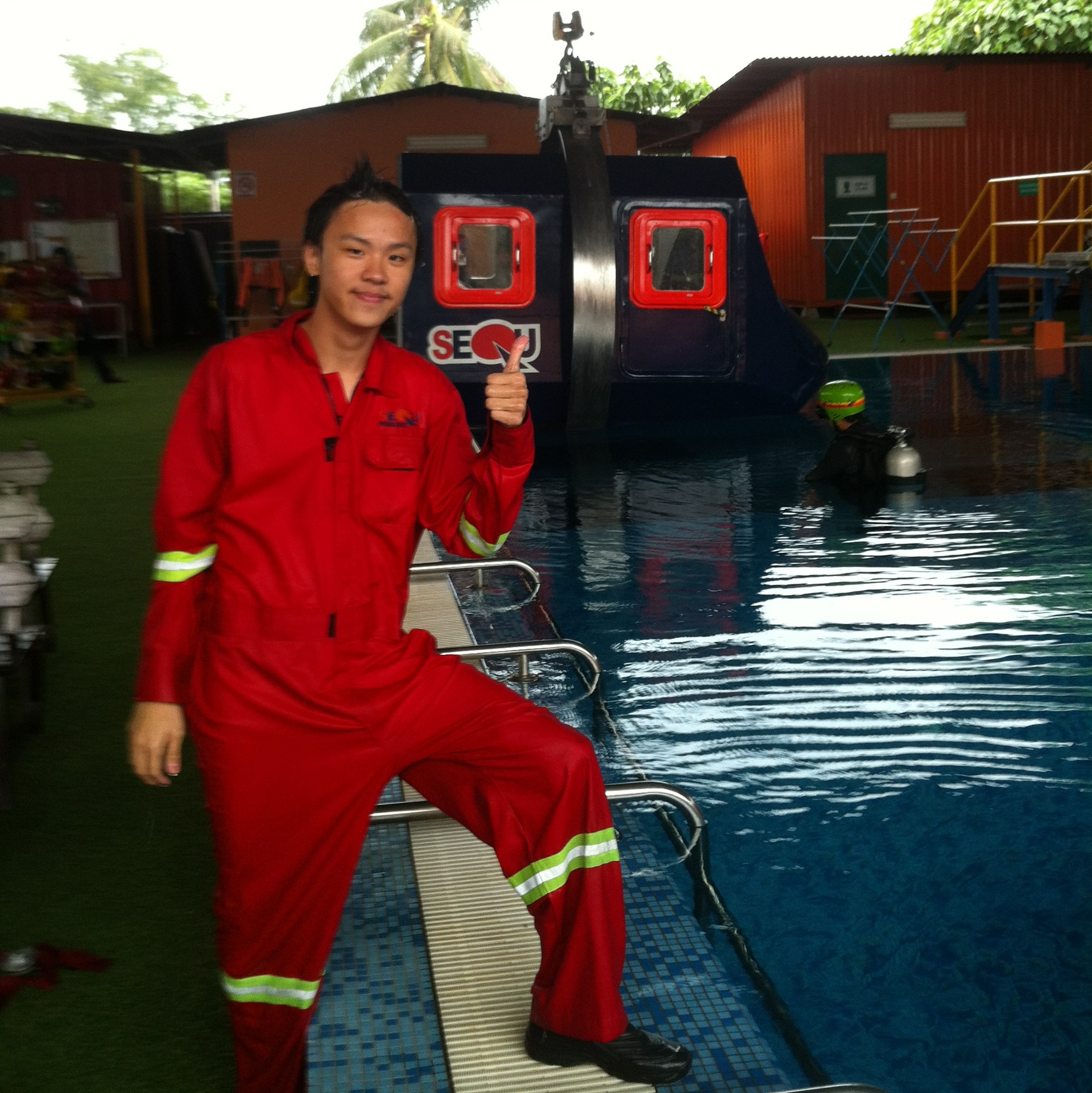Is Engineering Right for Me?
This page is specifically designed for those who are considering to pursue an engineering degree.
- indigenous peoples living in Canada
- least developed countries' citizens defined by the United Nations
- women
- single-parent or low-income families
- refugees
Various Engineering Programs
There are many different engineering programs being offered worldwide, with below options are the most common programs available in most of the engineering institutions:
| Program | Brief Description | Examples of Applications |
|---|---|---|
| Civil Enginnering | Design and development of infrastructure such as buidlings, transportation networks and water resources facilities | Construction of airports, bridges, highways, dams etc. |
| Chemical Enginnering | Implementation of technology related to industrial processes that involves the application of chemistry while considering its environmental impacts | Waste water treatment, food processing technology |
| Electrical Enginnering | Management of power transmission systems, communication networks and also the electronic components commonly used in daily life | Design of power systems and electronic components |
| Mechanical Enginnering | Design and optimization of mechanical systems and its associated energy systems | Design of air conditioning systems and automobile, energy management |
Please note that there are many other options as well beyond these options. However, many additional programs not listed above are usually closely related to the four major programs above. For example:
► Engineering programs that can be considered as specialities of the four major programs listed above.
- Aerospace Engineering: a speciality of Mechanical Engineering with aircrafts as the main mechanical system
- Strutural Engineering: a speciality of Civil Engineering with a specialized area in safe and optimum construction
- Environmental Engineering: a speciality of Chemical Engineering with specific focus on promoting a more sustainable environment
► Engineering programs that are combinations of two or more engineering programs.
- Mechatronics Engineering: a mixture between Mechanical and Electronics Engineering, e.g. robotic design
► Engineering programs that involve interdisciplinary knowledge between an Engineering field and other non-Engineering areas.
- Computer Engineering: involves applications of Electrical Engineering on Computer Science
- Biomedical Engineering: involves applications of Mechanical Engineering on medicine and biology
The programs in these three groups may be offered as a specialization option for students in the four main programs listed in the table (Civil, Mechanical, Electrical, Chemical), while some schools may separate them into different programs, so be sure to check with your school. You can see that Engineering is such a diverse field that involves many disciplines, even in other non-engineering fields! If you are passionate to lead the world in a better direction, pursuing an engineering degree would provide you a good platform to start.
General First Year Engineering
Whichever program you choose, you can expect to study a series of general engineering subjects in your first year. This means every engineering student, regardless of their programs of choice, will most likely take the same courses in the first year. These courses include but are not limited to:
Differentiation: When it comes to engineering analysis, engineers are often interested in rates of change. We need to differentiate how a parameter changes with respect to one or more other parameters. For example:
- If a car is moving, how fast is the speed changing with time? This would determine the acceleration of the car.
- If water is flowing in a pipe, how does the temperature of the water change across the pipe?
- If you know the speed of a car at every distance data point, you can integrate its speed and obtain total distance travelled by the car.
- In your car engine's cylinder, if you know the air pressure at every single volume data point, you can integrate the pressure to obtain the total work done by your engine.
- Differential Equations: Techniques to solve equations which involves a function with one or more devrivatives
- Linear Algebra: Theories of linear equations in a more complex context that often involve vectors and matrices
- Statistics: Organization, analysis, and interpretation of large sets of data. This often includes the study of probability
- Numerical Methods: Used to find numerical estimation to the solutions of ordinary differential equations
However, why are these subjects usually offered as first year common engineering subjects for all disciplines including Electrical or Chemical Engineering? Well, it is also common for Mechanical Engineering students to take some basic Electrical Engineering courses like circuit analysis. Engineering studies often involve lots of interdisciplinary areas. When it comes to an engineering project, often we are dealing with many other engineers from other disciplines. In order to communicate effectively with as many people as possible in engineering context, it is recommended to learn some basic subjects outside of our fields as well.
I personally appreciate these first-year general engineering courses because it allows students to take some time to explore their interests. Since everyone is studying the same courses, you get to explore a little bit on many general topics and then determine your passion. I personally took physics in three different areas (mechanics, electricity, modern physics) and finally found out Mechanical Engineering suits me the most.
Many schools allow their students to choose their programs at the end of their first year, so take full advantage of this first year to consider and decide what suits you the most. Please note that some programs may be competitive and often offered with certain quota. Therefore, it is common for schools to enroll students into their preferred choices of program based on their first-year academic performance.
How do I Know if Engineering is for Me?
Choosing a university program is an important life decision. Even when one has decided to pursue an engineering degree, there is also the next step of determining which engineering program to pursue. Moreover, within an engineering program, there are still many areas in which you can choose to specialize. These decisions can be tough, but doubts and uncertainties can often be reduced with proper consultation and detailed self-examination. Below are some factors that could be your reference in deciding if pursuing an engineering degree is a suitable option for you.
Interest:
Every path that you choose in your life will likely come with challenges. However, challenges can often be faced in a positive attitude if you are motivated and driven by your passion and interests. Engineers solve the real daily life challenges faced by today's society, so Engineering studies often involve a lot of design problems which require creative thinking and complex mathematical analysis. Some questions you could reflect on are:
- Do you enjoy mathematical calculations?
- Are you eager to find out how things work?
- Are you passionate in finding new innovative solutions to existing problems?
- Are you passionate in continuous learning and discovering new environments?
If you answered "yes", then you may find it enjoyable to pursue an engineering degree. If you are studying engineering, there may be no need for you to become a master of mathematics (note that degree in engineering and degree in mathematics are different). However, you need to have a certain level of passion in math because you will be dealing with numbers a lot. Often, many engineering courses will help you discover how things work with different principles involving formulae and numbers.
It is also common for engineering students to participate in projects in their final year that focus on solving some existing industrial problems, and students can get opportunities to experience the working environment in the industry. It is important for engineers to have passion in identifying evolving problems and deriving solutions to solve those challenging problems. With this passion and interest, you would be able to discover and appreciate the beauty of engineering.



Character:
As discussed above, engineering studies may involve some interdisciplinary studies. This means you would likely learn a few subject areas outside your major regardless of your program of choice. In engineering work environments, it is common to use team work to communicate with other engineers of different disciplines. Having more knowledge in other engineering disciplines could allow you to communicate more effectively in a team. Some questions you could reflect on are:
- Are you someone who embraces learning something outside your major?
- Do you prefer to work in a setting that involves a large component of team work?
- Do you like to travel and meet people (such as clients, contractors, suppliers)?
If you answered "yes", then an engineering program may be a good fit for you. Engineering students need to have passion to learn knowledge from multiples disciplines and communicate with a multidisplinary audience. Team work is also a strong component in engineering work. Many engineering regulatory bodies expect their applicants to have communication skills and abilities to work in a team. Engineering work may also involves travelling to sites, plants or overseas locations, depending on the nature of work and your organizations. When I worked in an oil and energy industry, I got the opportunity to travel to an offshore plant almost every month.
Intention:
Many people study Engineering because they think there will be a bright future such as earning a big salary. I personally disagree with this motivation. Spend a moment to reflect, what would you do if engineering is less blooming than you expected in the future (e.g. unexpected global oil price drop)? Would you still be passionate in your engineering career or would you prefer to pursue another area from scratch? Some questions you could reflect on are:
- What is your main driver to pursue engineering studies?
- How can that driver motivate you even when you are facing critical challenges in your engineering studies or career?
Understanding your main driving force is essential because it will sustain your motivation when you encounter unexpected challenges and obstacles along your journey. It is perfectly reasonable to be motivated by the prospect of high earnings, but I recommend not making it your sole reason for pursuing a degree. Some people enroll in engineering programs because they believe it will lead to a high-paying job in the future. However, they later discover other lucrative career paths—such as becoming a YouTuber or investing in cryptocurrency—and may start losing interest in engineering. For this reason, I do not recommend choosing engineering primarily for financial gain. Instead, it is important to have a genuine interest in the field, as passion and curiosity will help sustain long-term success and create real impacts.
